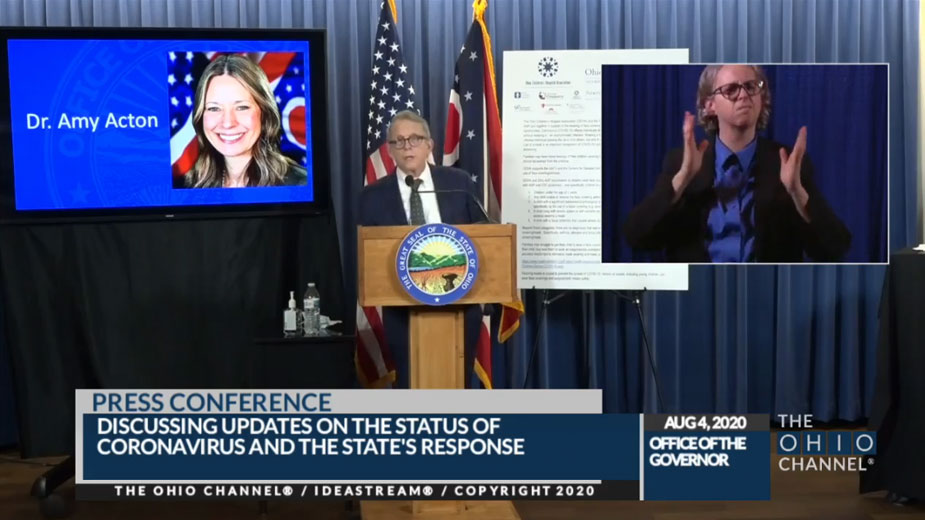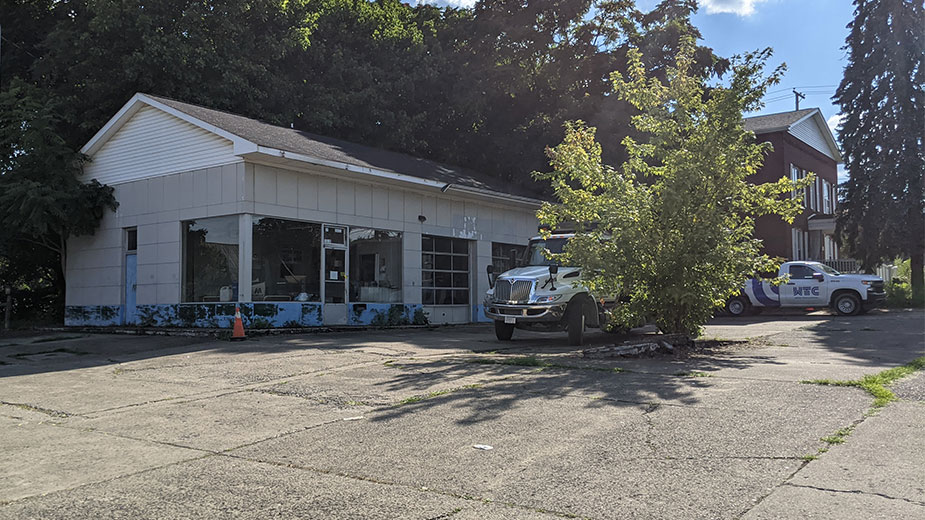Acton Stepping Down as DeWine’s Health Adviser
YOUNGSTOWN, Ohio — During his coronavirus briefing Tuesday, Gov. Mike DeWine said Dr. Amy Acton would be leaving state employment to return to her previous role with The Columbus Foundation.
After resigning as director of the Ohio Department of Health in June, Acton remained as DeWine’s chief health adviser. In addition to taking time off to rest, she has been preparing to testify in lawsuits brought against the state of Ohio, the governor said.
As of Monday, Acton advised DeWine of her decision. Prior to accepting the role as director of ODH in 2019, she worked as the community research and grants management officer for The Columbus Foundation.
“It saddens me for her to be leaving our office,” DeWine said. “She has assured me, though, that she is just a phone call away or a text away, and should be available to continue advising me and our office as we move through this pandemic.”
As he did when Acton first announced her resignation, DeWine commended her work during the pandemic, saying that “her knowledge of and passion for public health helped position Ohio as well as we could be as we faced the early stages of COVID-19.
“In the face of criticism, she remained strong, resolute, determined and brave,” he added.
During a briefing on June 11 when Acton announced her resignation from ODH, the Youngstown native commented on her time serving alongside the DeWine administration during the coronavirus pandemic.
“Ohioans, you have saved lives,” she said. “You’ve done this. And it is my honor to continue to work on this alongside of you and to witness what you have done already, what you are doing right now to get back into our lives and do so as safely as you can, and I look forward to witnessing what you are going to do next. Because we do have this journey together, it’s challenges, but I see incredible opportunities.”
Her time as ODH director during the pandemic were contentious up until her resignation. Acton became the target of frustrated Ohioans and her home was the site of multiple protests, with some of the protesters arriving armed. Acton faced lawsuits by organizers of music festivals and restaurateurs, among other business owners in the state because of shutdown orders.
Protests also drew antisemitic rhetoric. Acton is Jewish. In April, during a stay-at-home protest at the statehouse, some protesters held a sign illustrating a rodent with the Star of David on its side with the words “The Real Plague.”
She also faced criticism from some elected officials in the state. In May, state Sen. Andrew Brenner commented on his wife’s Facebook post comparing orders signed by Acton to Nazi Germany.
“This actually feels like Hitler’s Germany where you had to have blonde hair and blue eyes to be able to function anyway, and you were damned otherwise,” Sara Brenner wrote. “When are people going to say enough is enough?”
“We won’t allow that to happen in Ohio,” Sen. Brenner responded. Brenner issued an apology after bipartisan criticism of the post.
That month, House Republicans, led by disgraced former speaker Larry Householder, amended and passed a 2019 regulatory reform bill that would have limited the ODH and Acton’s authority to issue lasting state orders. The state Senate voted against the bill.
In July, DeWine vetoed Senate Bill 55, which would have reduced the penalty for public health order violations.
State to Ramp up Testing
In other coronavirus news, DeWine reported for the past week, state testing efforts have averaged 22,000 tests daily, more than double from six weeks ago, he said.
“But we know we have to continue to increase that,” he said.
Tests are necessary to diagnose COVID-19 and to be used as a screening tool to help control the spread of the virus. One of that ways to do so is to expand the use of rapid point-of-care tests, which are “faster, simpler and less expensive than the so-called PCR [polymerase chain reaction] tests that we are processing today in our labs,” DeWine said.
In an effort to expand the use of rapid point-of-care tests, Ohio is entering into a multi-state purchasing agreement with Maryland, Louisiana, Massachusetts, Michigan and Virginia, DeWine said. The test will allow for earlier detection of outbreaks, faster turnaround time, expanded testing in congregate settings and “to make testing more accessible for the most high-risk and hard-hit communities,” he said.
“This interstate purchasing agreement with the other states, we believe should demonstrate to testing manufacturers that there is a significant demand for this type of test, and has the potential to help us buy these tests and associated supplies in a more cost-effective and a more sustainable way,” he said.
The state will continue watching for evolved testing technologies and availability to increase the number of tools available to help mitigate the spread of COVID-19, he said.
As of Aug. 4, the state has conducted 1,550,747 tests. The current seven-day moving average of positive tests is 5.7%.
Copyright 2024 The Business Journal, Youngstown, Ohio.



